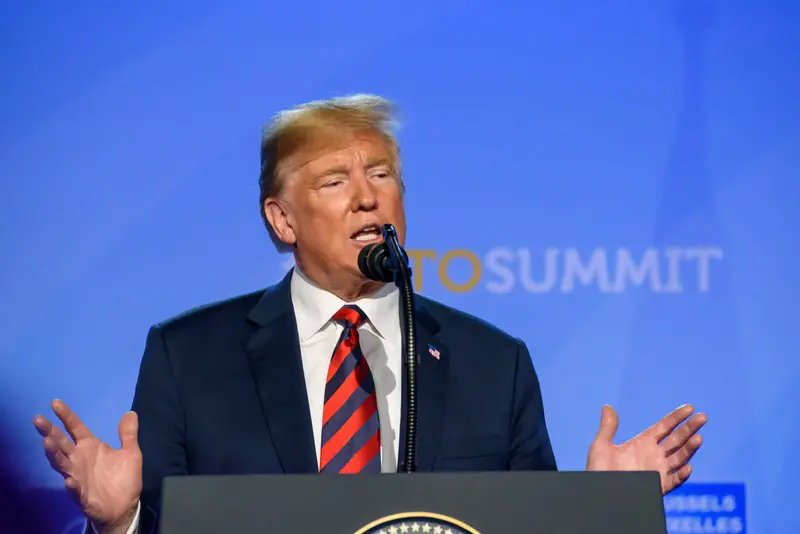On Wednesday, Feb. 19, 2025, President Donald Trump signed an executive order aimed at prohibiting access to federally funded benefits for undocumented immigrants, following through on a central pledge of his campaign to clamp down on illegal immigration.
The executive order instructs all federal departments to identify programs delivering benefits to individuals residing in the country unlawfully and to enact “corrective action” in line with current immigration laws, specifically the Personal Responsibility and Work Opportunity Reconciliation Act of 1996 (PRWORA).
“My Administration will uphold the rule of law, defend against the waste of hard-earned taxpayer resources, and protect benefits for American citizens in need, including individuals with disabilities and veterans,” stated the text of Trump’s order.
In the executive order, President Trump criticized the Biden administration for repeatedly undermining the purpose of the law, leading to significant financial burdens for taxpayers. The president argued that these resources serve as a “magnet” for immigrants, thereby “fueling illegal immigration to the United States.”
While the 1996 welfare law already restricts most undocumented immigrants from accessing federal benefits, with exceptions for emergency medical care and public education for children, the Trump administration claims these restrictions have been subtly eroded over time, especially over the preceding four years.
The executive order mandates that government officials ensure federal payments to states and local areas do not support or encourage illegal immigration or aid “sanctuary” policies that aim to protect undocumented immigrants from deportation, in compliance with applicable law.
The Department of Government Efficiency (DOGE), under the leadership of billionaire Elon Musk, has been assigned by President Trump to identify “all other sources of Federal funding for illegal aliens” and recommend “additional agency actions to align Federal spending with the purposes of this order.” The order also requires agencies to refer any improper benefits received by undocumented immigrants to the Department of Justice and the Department of Homeland Security for “appropriate action.”
According to a White House fact sheet on the executive order, American taxpayers allegedly spend billions annually on welfare for undocumented immigrants. The order cites an advocacy group’s claim that American taxpayers bear an annual cost of $182 billion associated with undocumented immigrants.
However, experts in immigration policy paint a more complex picture. As reported by The New York Times, “undocumented immigrants have contributed tens of billions to the Social Security system,” despite their ineligibility for most benefits.
Critics argue that the majority of undocumented immigrants are already ineligible for federal benefits. As per NPR, “Immigrants without legal status generally do not qualify for federal benefits,” with few exceptions for emergencies and programs like Medicaid and CHIP for those granted parole into the United States.
The National Immigration Law Center points out that the 1996 welfare laws established categories of “qualified” and “not qualified” immigrants, with the majority of undocumented immigrants falling into the latter category and being ineligible for most public benefits. The organization also notes that immigrants encounter numerous obstacles in accessing benefits, including confusion about eligibility rules, fear of being labeled a “public charge,” and language barriers.
This executive order from President Trump is part of a wider series of immigration-related actions since the commencement of his second term. Previous orders have aimed at ending asylum at the southern border and automatic citizenship for individuals born on U.S. soil.
The actual impact of the order remains to be seen. Nevertheless, experts suggest it could create an atmosphere of fear within immigrant communities nationwide.
The executive order may also face legal hurdles. A previous attempt by President Trump to withhold federal funds from sanctuary cities was rejected by the Supreme Court.
The executive order further calls for the enhancement of “eligibility verification systems, to the maximum extent possible,” in order to exclude undocumented immigrants from taxpayer-funded benefits. This is in line with the Systematic Alien Verification for Entitlements (SAVE) program, which was expanded under the Personal Responsibility and Work Opportunity Reconciliation Act of 1996.
President Trump has commended Musk and DOGE for their role in implementing several of his executive orders, as reported by the New York Post.
This new order represents another move in Trump’s ongoing efforts to reshape immigration policy in the United States. While the administration frames it as protecting American taxpayers, policy experts continue to debate the actual financial impact of undocumented immigrants on public resources.











